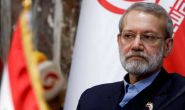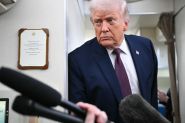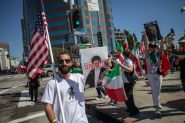- Home
- Middle East
- Trump and MBS Seal Massive Deals
Mohammed bin Salman’s (MBS) visit to Washington resulted in one of the most spectacular announcements of the Trump era: nearly one trillion dollars in agreements and commitments, both economic and military, between the United States and Saudi Arabia.
The Saudi crown prince, welcomed to a lavish ceremony at the White House, revealed that the initial six hundred billion dollars in mega-deals would expand to nearly one trillion dollars, aiming to support Saudi Arabia’s Vision 2030 and reinforce strategic ties with the United States. Donald Trump, emphasizing his business deal skills, hailed the agreements as a “historic partnership” that he said “will change the game for the American economy.”
A Mega-Arms Deal at the Core
Central to the pact are vast defense contracts, described by Washington as among the largest ever signed. The United States approved an arms sale worth one hundred forty-two billion dollars, covering advanced systems for Saudi Arabia’s navy, air force, and air defense.
The military cooperation is a cornerstone of Saudi strategy, as MBS seeks to modernize his forces amid regional tensions. For Trump, the contracts boost the U.S. arms industry and provide a high-profile political win, reinforcing his image as a dealmaker.
Israeli Concerns Over F-35 Sales
Talks over the potential sale of F-35 fighter jets have raised tensions in Israel. Officials fear that Saudi access to these advanced, fifth-generation stealth aircraft could undermine Israel’s qualitative military edge, a cornerstone of the country’s security strategy.
While Jerusalem publicly maintains a cautious stance, several security sources have privately warned that transferring such technology to Riyadh could set a dangerous precedent in a region where military balances are highly delicate.
Massive Investments in the U.S. Economy
Beyond arms, Riyadh is pledging a series of investments in the United States. MBS outlined a roadmap covering energy, artificial intelligence, infrastructure, and critical minerals. Saudi officials view the agreements as a means to secure strategic technologies and diversify their economy in line with Vision 2030.
For Trump, the deals support his vision of American industrial revival, promising job creation, strengthened strategic sectors, and enhanced economic influence amid rising competition from China.
A Strategic but Controversial Partnership
Despite the fanfare, questions remain. Analysts note that the one trillion dollars figure represents a political target more than fully finalized deals. Public documents confirm the arms sales and a “strategic defense agreement,” but much of the broader investment plan will depend on years of negotiations and approvals.
Critics also raise ethical concerns, pointing to Saudi Arabia’s record on human rights and potential influence in sensitive U.S. sectors. Some observers question whether Trump could personally benefit given his longstanding ties to the Kingdom.
A Shift in Regional Dynamics
Geopolitically, the agreements signal a major realignment in the Middle East. Riyadh strengthens its role as a U.S. ally as Iran, Turkey, and China expand their regional influence. The military and technological partnership positions Saudi Arabia as a key player in regional security while providing Trump with diplomatic leverage.
The ultimate impact will depend on the implementation of these commitments. For now, Trump and MBS have projected an image of economic and strategic power designed to redefine the Washington-Riyadh relationship for the decade ahead.
Read more




Comments